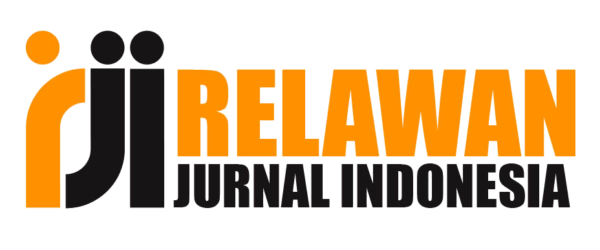Development of physics learning materials on temperature and heat topics using problem-based learning models to improve students' conceptual understanding
Abstract
Keywords
Full Text:
PDFReferences
Astiti, K. A. & Yusuf, Y. H. M. (2018). Pengaruh penggunaan bahan ajar berbasis kontekstual terhadap peningkatan pemahaman konsep fisika siswa materi suhu dan kalor. Jurnal Fisika : Fisika Sains dan Aplikasinya, 3(2), 185–192. https://doi.org/10.35508/fisa.v3i2.625.
Egista, E., Taufik, M. Zuhdi, M. & Kosim, K. (2022). Pengembangan perangkat pembelajaran fisika pada materi getaran harmonis menggunakan model discovery learning untuk meningkatkan penguasaan konsep peserta didik. Jurnal Ilmiah Profesi Pendidikan 7(1), 1–46. https://doi.org/10.29303/jipp.v7i1.397
Elisa, Mardiyah, A. & Ariaji. R. (2017). Peningkatan pemahaman konsep fisika dan aktivitas mahasiswa melalui phet simulation. Jurnal Penelitian Tindakan Kelas dan Pengembangan Pembelajaran, 1(1), 15–20. http://dx.doi.org/10.31604/ptk.v1i1.15-20.
Handayani, Y. & Marisda, D. H. (2020). Model pembelajaran discovery learning berbasis hypercontent pada konsep suhu dan kalor. Karst, 3(1), 122–127. https://doi.org/10.46918/karst.v3i1.574.
Latifah, S. (2016). Pengembangan lembar kerja peserta didik (LKPD) berorientasi nilai-nilai agama islam melalui pendekatan inkuiri terbimbing pada materi suhu dan kalor. Jurnal Ilmiah Pendidikan Fisika Al-Biruni, 5(1), 43–51. https://doi.org/10.24042/jpifalbiruni.v5i1.104.
Lestari, P. A. S., Gunawan, G., & Kosim, K. (2019). Model pembelajaran discovery dengan pendekatan konflik kognitif berorientasi pada kemampuan berpikir kritis peserta didik. Jurnal Pendidikan Fisika dan Teknologi, 5(1), 118-123. https://doi.org/10.29303/jpft.v5i1.1161.
Murdani, E. (2020). Hakikat Fisika dan keterampilan proses Sains. Jurnal Filsafat Indonesia, 3(3), 72-80. https://doi.org/10.23887/jfi.v3i3.22195
Sari, I. M., Karim, S., Lubis, M. H. & Sinaga, P. (2020). Efektivitas model based learning (MBL) dalam meningkatkan penguasaan konsep peserta didik pada materi kalor dan perpindahannya. Wahana Pendidikan Fisika, 5(1), 23–30.
Satriawan, M. & Rosmiati. (2017). Pengembangan bahan ajar fisika berbasis kontekstual dengan mengintegrasikan kearifan lokal untuk meningkatkan pemahaman konsep fisika pada mahasiswa. Jurnal Penelitian Pendidik Sains, 6(1), 1212. https://doi.org/10.26740/jpps.v6n1.p1212-1217.
Suhendar, U. & Ekayanti, A. (2018). Problem based learning sebagai upaya peningkatan pemahaman konsep matematis mahasiswa. Jurnal Dimensi Pendidikan dan Pembelajaran, 6(1), 15–19, https://doi.org/10.24269/dpp.v6i1.815.
Turrahmah, M., Susilawati S. & Makhrus. (2019). Pengaruh model discovery learning berbantuan alat praktikum usaha dan energi terhadap penguasaan konsep fisika peserta didik. Jurnal Pijar MIPA, 14(3), 118–122. https://doi.org/10.29303/jpm.v14i3.1329.
Yulianti, E., & Gunawan, I. (2019). Model pembelajaran problem based learning (PBL): Efeknya terhadap pemahaman konsep dan berpikir kritis. Indonesian Journal of Science and Mathematics Education, 2(3), 399-408. https://doi.org/10.24042/ijsme.v2i3.4366.
Setyosari, P. (2016). Metode Penelitian Pendidikan dan Pengembangan. Jakarta: Prenada Media Group.
Shilphy, A. (2020). Model-Model Pembelajaran. Sleman: Deepublish Publisher.
Sugiyono. (2017). Metode Penelitian Pendekatan Kuantitatif, Kualitatif, dan R & D. Bandung: Alfabeta.
Zulkarnaini. (2018). Penerapan pembelajaran berbasis web untuk meningkatkan pemahaman konsep dan keterampilan generik sains siswa kelas X SMA pada materi suhu dan kalor. Jurnal Dedikasi Pendidikan, 2(2), 141–152. https://doi.org/10.30601/dedikasi.v2i2.109.
DOI: https://doi.org/10.17509/wapfi.v8i1.53944
Refbacks
- There are currently no refbacks.
Copyright (c) 2023 Universitas Pendidikan Indonesia (UPI)

This work is licensed under a Creative Commons Attribution-ShareAlike 4.0 International License.
The Journal Wahana Pendidikan Fisika http://ejournal.upi.edu/index.php/WapFi/ is licensed under a Creative Commons Attribution-ShareAlike 4.0 International License
The Journal WaPFi (Wahana Pendidikan Fisika).
All rights reserverd. pISSN 2338-1027 eISSN 2685-4414
Copyright © Faculty of Mathematics and Science Education (FPMIPA) Universitas Pendidikan Indonesia (UPI)










